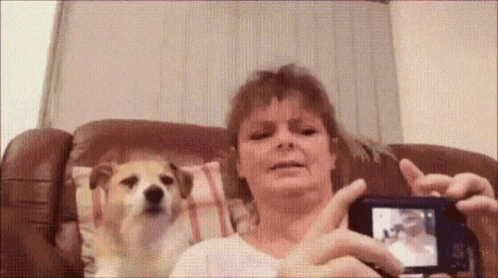Spectrum of Caring

Suffering is unavoidable in medicine. The goal, obviously, is to prevent, spare, limit, and otherwise mitigate it if possible, but to be in this career means high contact with suffering animals. That's why we're needed. We trained for this. We seek out and destroy pain at all points along its pathways. We see it, and we respond.
That's the idea, at least. But there's always a trade off. No good deed goes unpunished, as the prolific Mark Crislip would say. One of the great burdens of the medical professions is to know when and where to accept those costs and intervene anyway. It's why medicine remains, despite my commitment to science-based practice, an art form.
As the sophistication of medicine increase, so does the complexity of each case. It's no longer the case that you just apply leeches and trephine the skull of every patient. You add more and more variables with every new disease described, diagnostic test introduced to the market, or medication approved by the FDA. It gets harder and harder to weigh the trade offs.
If you've taken an oath, as I have, to ameliorate suffering, your increased detection capacity combined with your expanding arsenal of analgesic options would seem like the remarkable fruits of progress of modern veterinary medicine. Except for one damnably obstinate and critically important limiting factor: the client.

I really do think people want to be helpful, but they can't help getting in the way. Animals are just so much more honest. A crocodile just wants to kill you. It'll be direct about it. Can you imagine a passive aggressive Yorkie? It doesn't work. But people? They are so confused about how they feel! They say they want X, but actually they're acting like they want Y, and they don't even realize it's making them end up getting Z, which often leaves you F-ed.
It's so much harder to practice animal medicine when humans are involved. But they are. There's no way around it. Cats are not driving themselves to the vet clinic when they have trouble peeing. People are always involved. It makes it a hell of a lot more difficult when someone other than a trained medical professional is involved in the medical decision making. But it's just the way that it is.
There are little tips and tricks you can use on Homo sapiens, but they don't always work. You can't always explain an animal's medical condition to someone. Often, in fact, they end up with (or started with) a completely deluded sense of the situation. Some folks don't share the same reality.

What's heartbreaking is not being able to show someone how counterproductive their actions are. How their refusal to recognize suffering needlessly extends that suffering. And it's so tempting to blame them for their ignorance, to hate them for their lack of participation in your shared goal of doing what's "best".
Organized veterinary medicine has coined a term to cope with the backlash against transaction-maximizing "gold standards" that so frequently erode client trust: Spectrum of Care. Rather than advocate for the most expensive option first, Spectrum of Care considers the client's financial capabilities and formulates a solution within those. This is a good approach for an essential service like veterinary medicine to take.
But clients have emotional and perceptual gradients too. A generation raised on animal cartoons might not grasp harsh medical realities as one who grew up on a farm. Unrealistic expectations can lead to subconscious resistance when reality comes to bite like a snappy chihuahua. The sad irony is that caring too much really can lead to tragedy.
I had two cases the other day where I disagreed with the owner's wishes. A cat with severe head trauma and an older golden retriever with a bleeding splenic mass. I wanted to end their suffering, the owners wanted to "fight" for their animals. They were acting out of love, I out of hard experience. I disagreed, but accepted. I'm not in control, I'm just here to guide.
Cruelty exists, but it's rare. Flawed as our society is, we value animals on an individual level. Pet owners really do want their animals to be happy, but they're so often confused about what that looks like. And it's much, much more common for suffering to be the unintentional consequence of caring too much than too little. Human doctors know this too, most wouldn't want aggressive medical care for themselves, knowing the harsh reality.
It's horrible to see animals linger in agony because an owner has a firm belief that euthanasia is murder. Beliefs, customs, and culture are not explicitly taught in vet school. But medicine isn't just molecules. Suffering can be stopped, if the voiceless are advocated for. Acceptance isn't necessarily defeat. It can be peace.





Comments ()